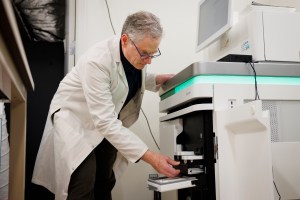Science & Tech
-
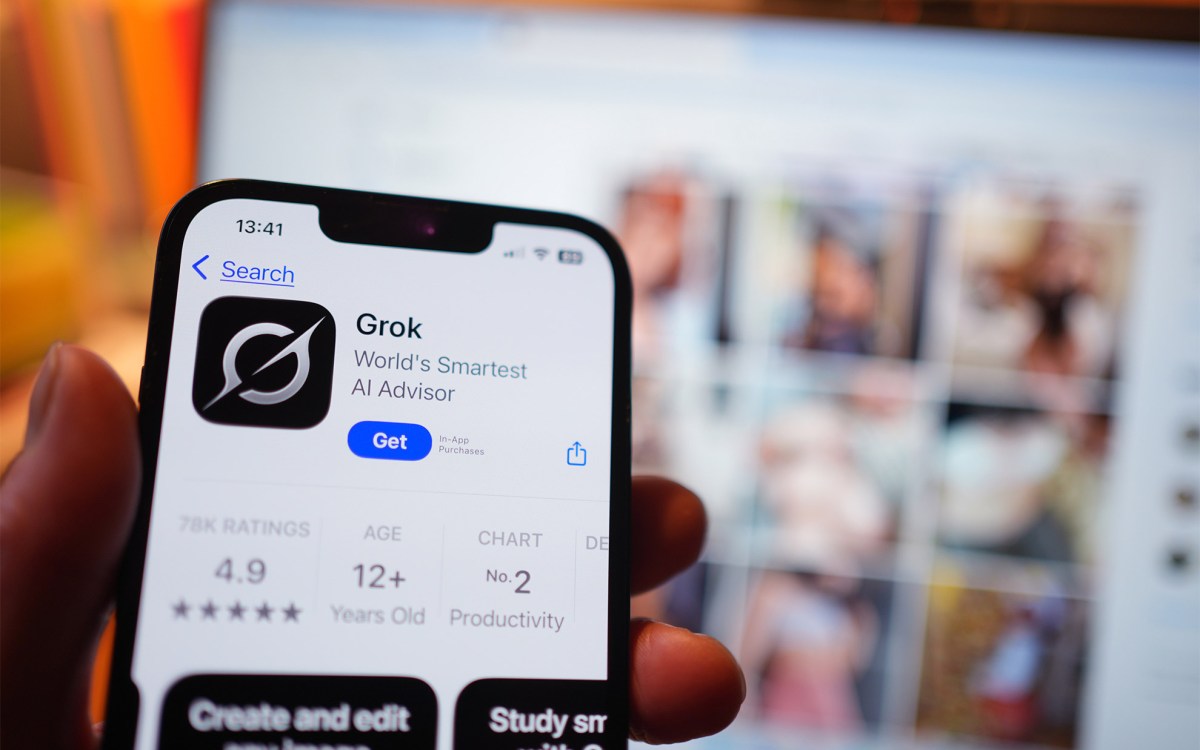
How AI deepfakes have skirted revenge porn laws
Limits unclear when explicit images of individuals look real, but are digitally generated
-
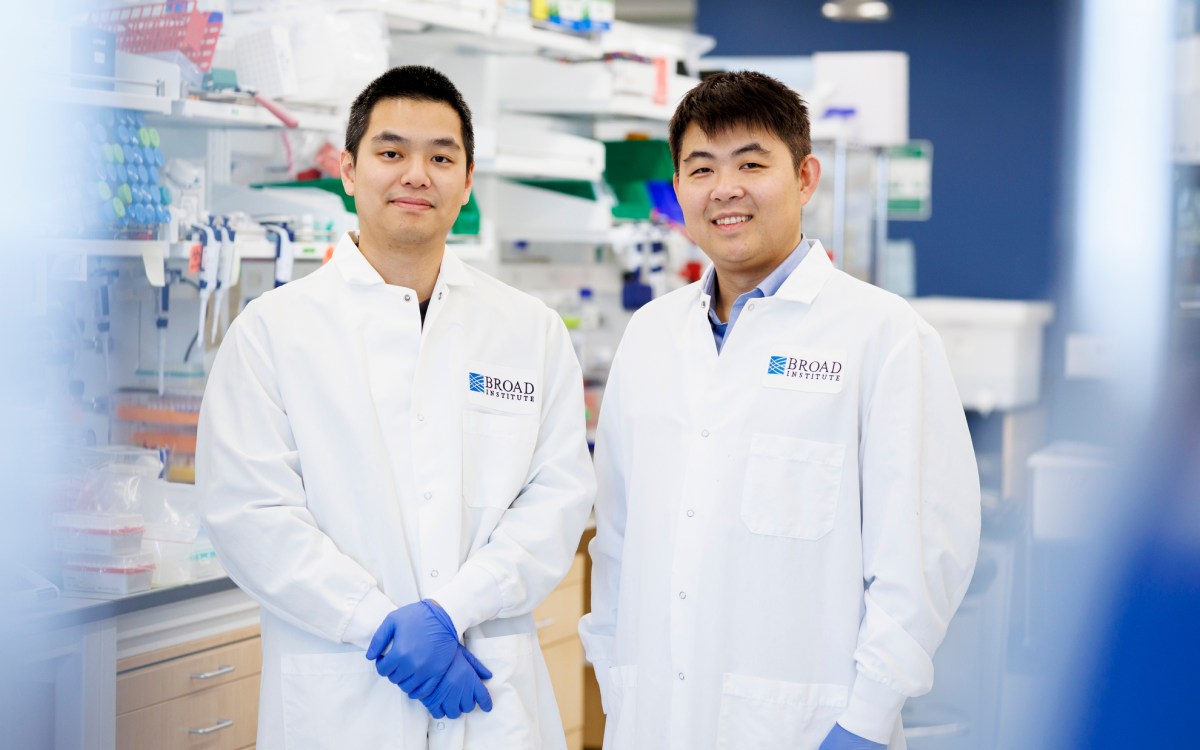
How did that cancer cell become drug-resistant?
Researchers find way to create microscopic archives of gene activity to gain insights into how, why changes happen

-
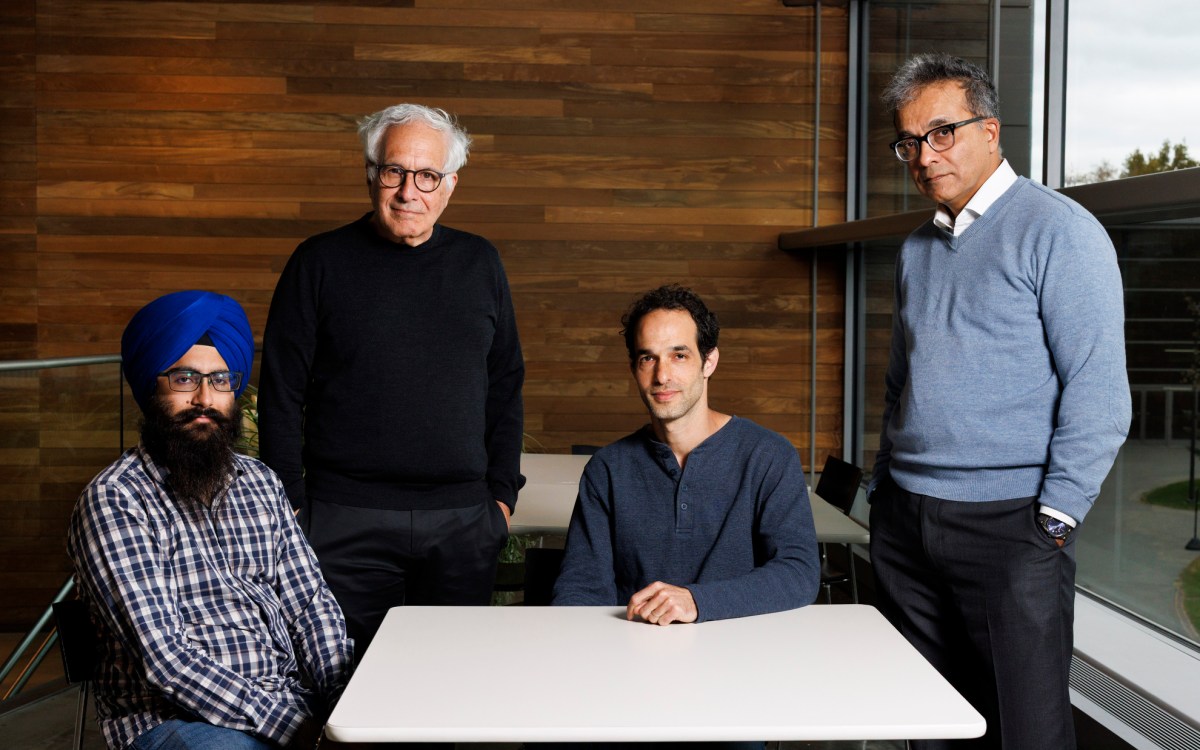
Want to speed brain research? It’s all in how you look at it.
New AI-enhanced scanning method promises to boost quest for high-resolution mapping
-
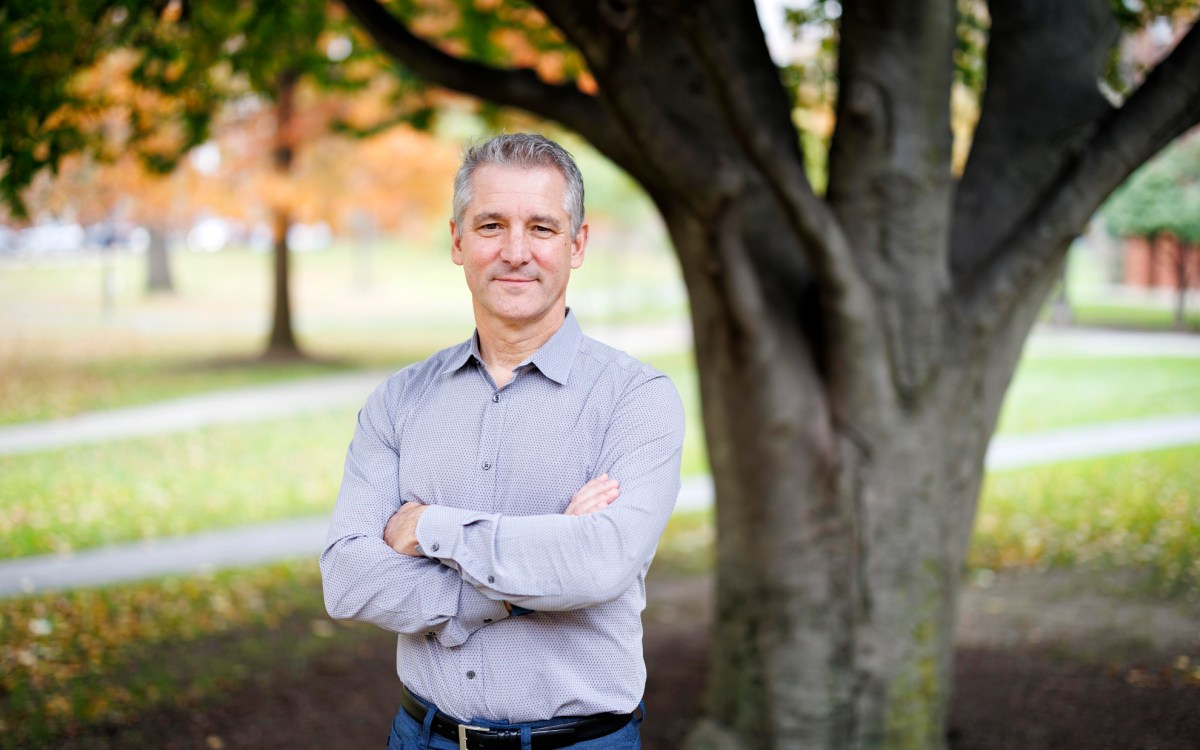
-
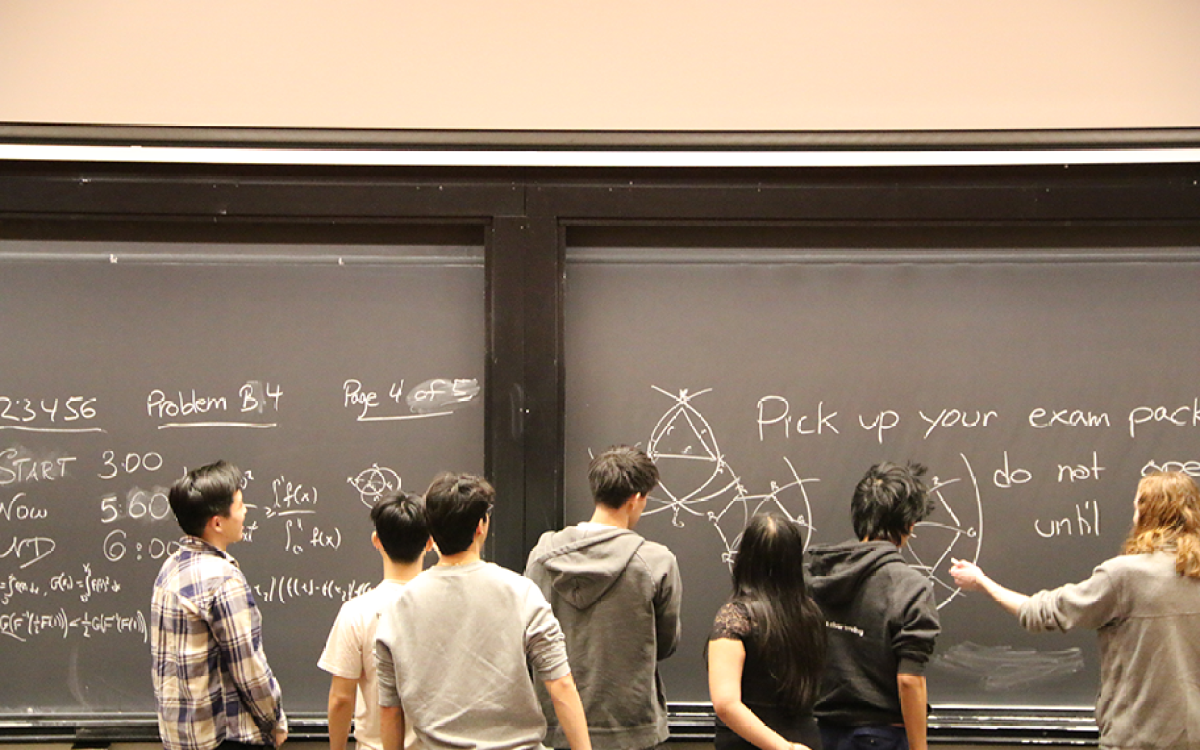
‘It just feels good when you solve the hard problems’
Why do students volunteer to take this notoriously difficult math exam? For the fun of it.
-
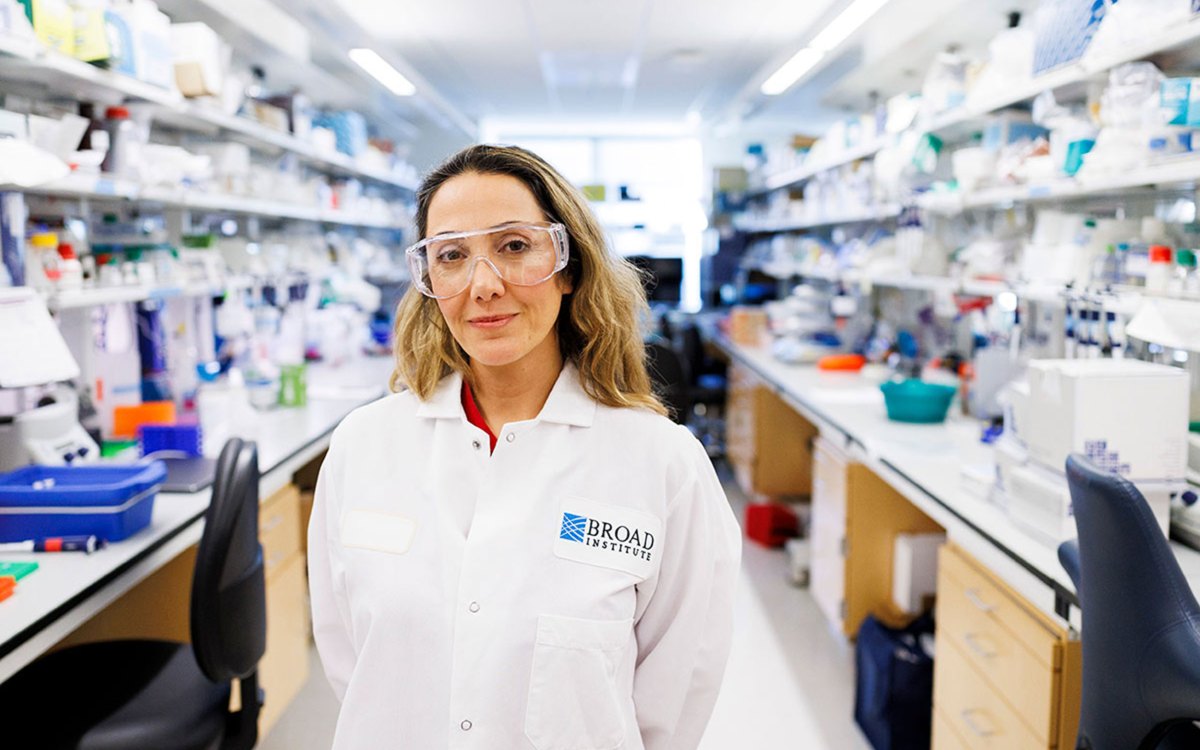
Stopping the next pandemic
Disease surveillance network faced ‘existential cliff’ despite proven success. Then came the $100 million.
-
A theory rewarded
Following the announcement of the 2013 Nobel Prize in physics, Harvard faculty who participated in the search for the Higgs boson said they were honored to have played a role in the discovery of the particle that proved theoretical predictions correct.
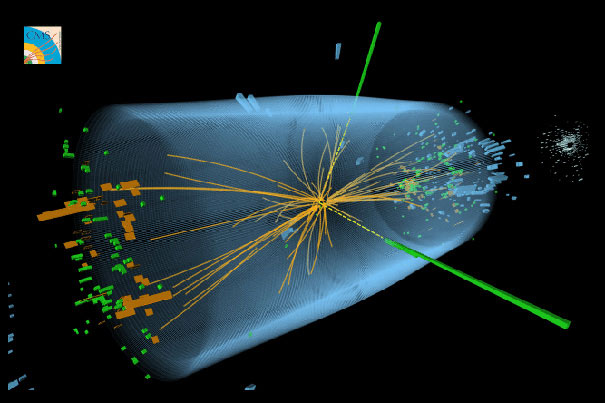
-
Robots to the rescue
The Second Annual Northeast Robotics Colloquium highlighted Harvard’s work on the next generation of robotics.
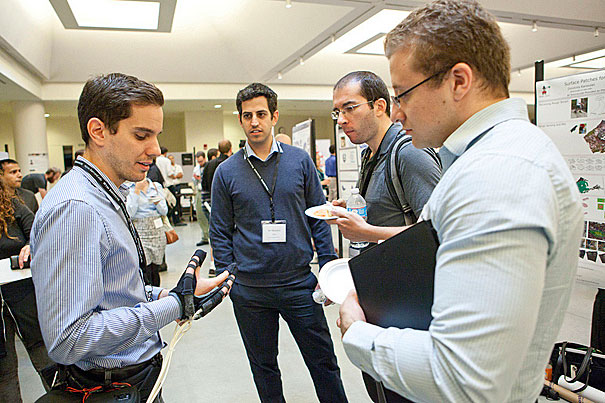
-
Galileo’s reach
Some four centuries after Galileo observed spots on the surface of the sun, historians, musicians and actors came together at Harvard on Oct. 4 for an all-day conference to celebrate his discovery.
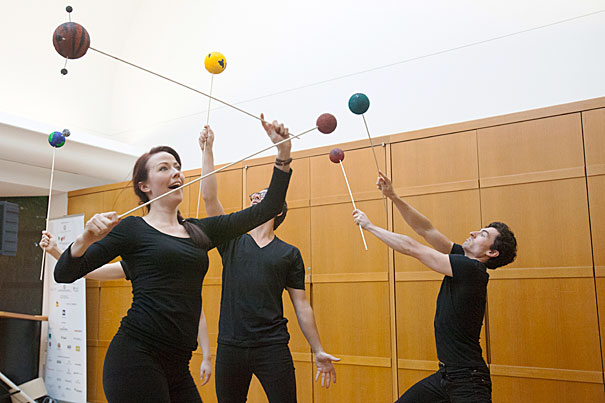
-
The Himalayas’ amazing biodiversity
Can science and art join forces to conserve one of the world’s richest natural areas? UMass Boston biology professor Kamal Bawa and photographer Sandesh Kadur, a National Geographic emerging explorer, have joined forces to create a richly illustrated, scientifically accurate account of biodiversity in the Himalayas.
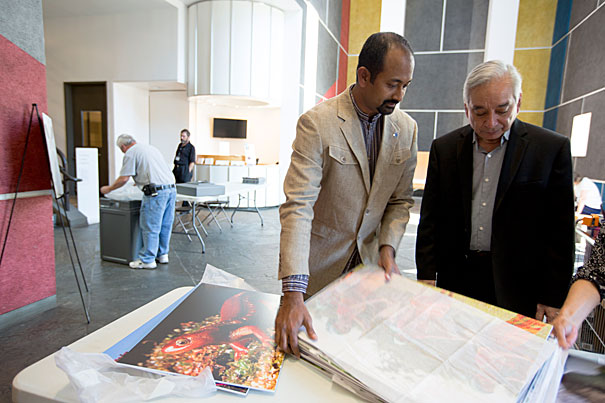
-
Fresh hopes on climate change
A top U.N. climate official said doom and gloom on the issue is just part of the story and that there are many innovative programs and products that provide reasons for hope.
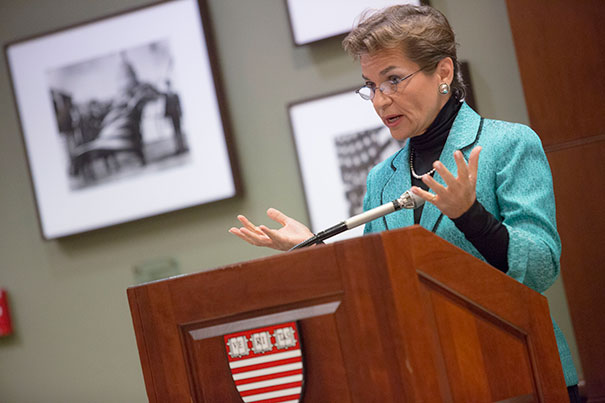
-
Seeing light in a new way
Working with colleagues at the Harvard-MIT Center for Ultracold Atoms, Professor of Physics Mikhail Lukin and post-doctoral fellow Ofer Firstenberg have managed to coax photons into binding together to form molecules — a state of matter that, until recently, had been purely theoretical.

-
Following the missteps of giants
Blunders by otherwise great scientists took center stage at the Barker Center on Sept. 25 when a faculty panel posed questions to Hubble Space Telescope Science Institute Senior Astrophysicist Mario Livio about his latest book on the subject.
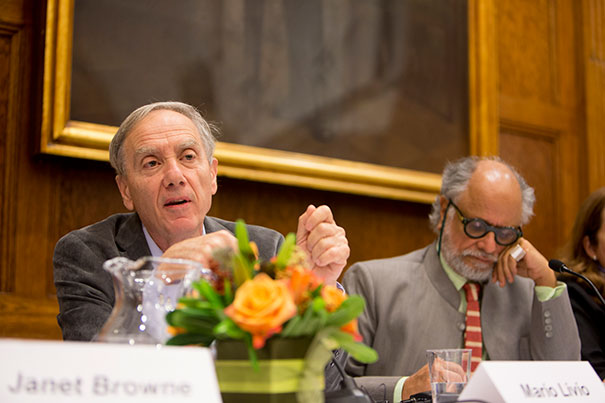
-
The watchword is innovation
Innovation, whether it’s large, small, solo, or institutional, is an increasingly important part of Harvard, a university working to maintain its clearly defined sense of self and at the same time evolve to meet future needs.
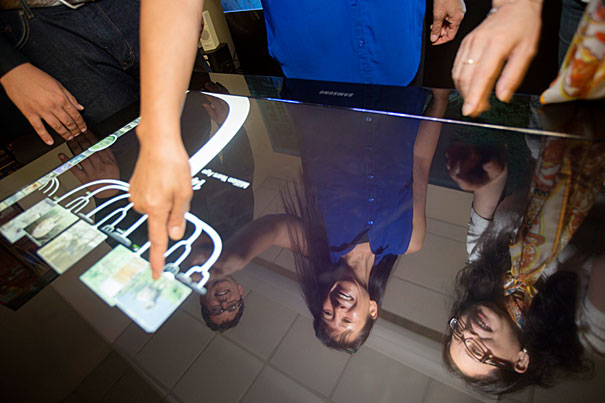
-
Where students own their education
The class Applied Physics 50 is grounded in a teaching philosophy that banishes lectures and encourages hands-on exploration, presenting a collection of best practices gleaned from decades of teaching experience and studious visits to college physics classrooms nationwide.
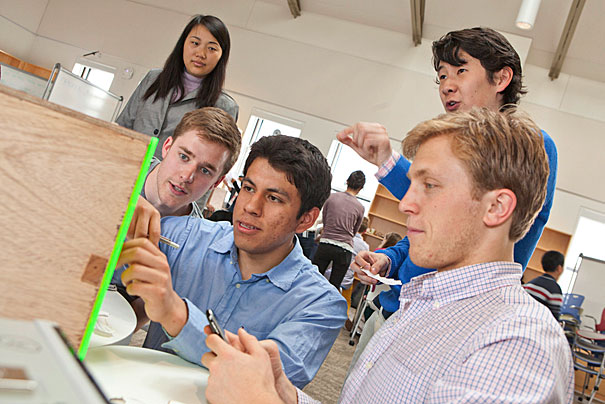
-
Bright lights, big impact
Harvard’s facility managers are working to improve energy systems and performance in their buildings. Their efforts, which include installing better equipment, are focused on ensuring that buildings operate as efficiently as possible.
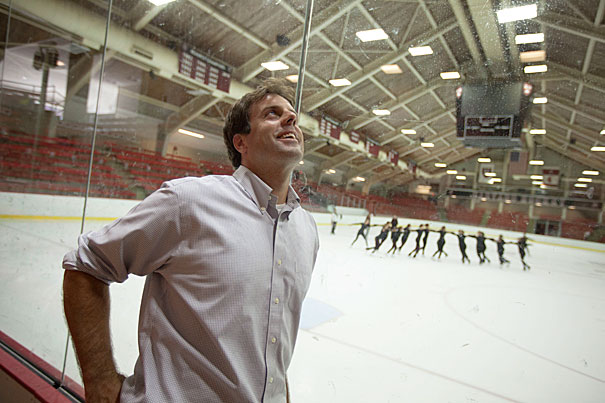
-
The bees’ needs
Harvard groups support hives, conduct research, and sample honey.
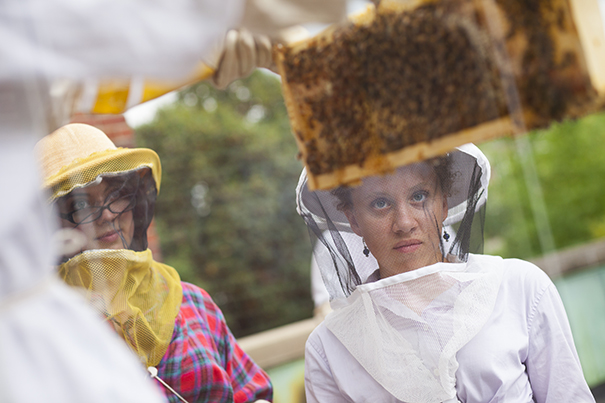
-
‘Chasing Ice,’ and searching for solutions
A screening of the film “Chasing Ice” brought Harvard experts together to discuss innovations in monitoring the glaciers’ retreat and how America can tap its own energy sources.
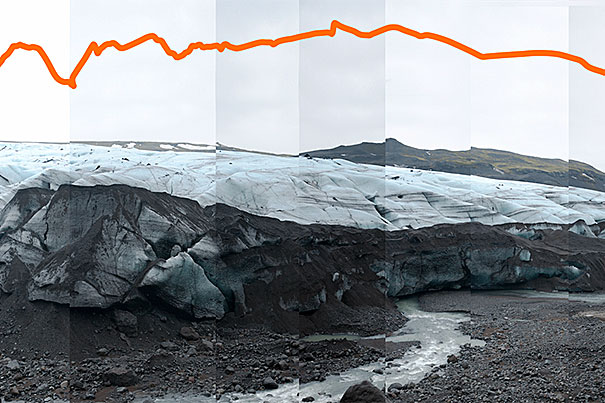
-
A higher plane
Research by scientists in Elizabeth Spelke’s lab suggests our innate understanding of abstract geometry has origins in the evolutionary past.
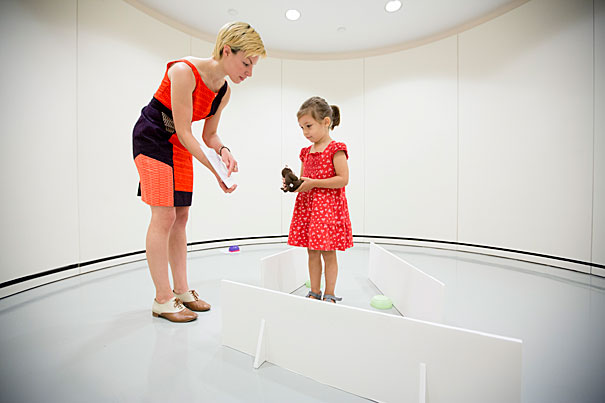
-
Advancing science and technology
The National Science Foundation is awarding grants to create three new science and technology centers this year, with two of them based in Cambridge. The two multi-institutional grants total $45 million over five years.

-
Dawn of a revolution
When Bill Gates came to Harvard as a student, he was known for his myriad interests and unconventional study habits. And then there was his endless fascination with computers, Walter Isaacson writes.
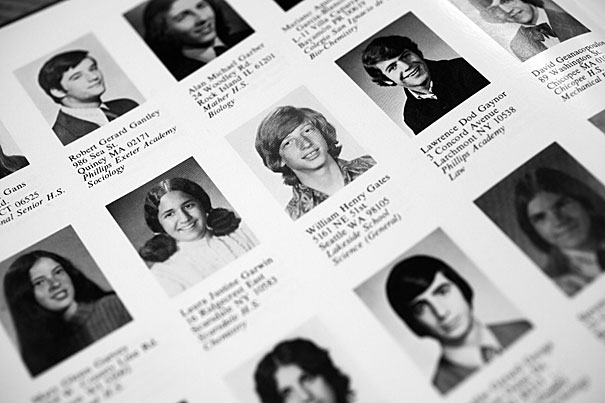
-
Big problems, small solutions
Author and activist Bill McKibben ’82 visited Harvard with a message: In the face of catastrophic climate change, it’s time for overt and energetic civil action.
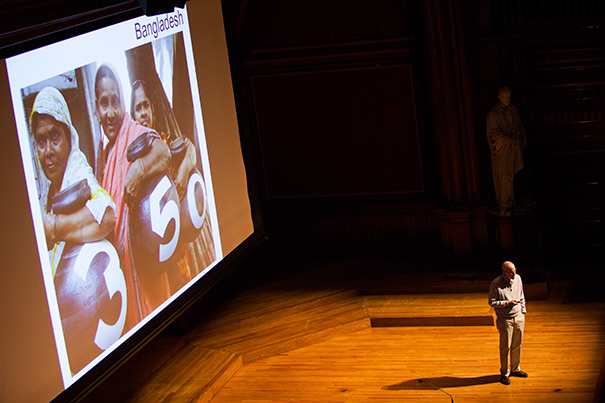
-
The building blocks of planets
Harvard’s Matt Holman, a lecturer on astrophysics, and his collaborators at the Southwest Research Institute in Colorado are piggybacking their research onto a NASA spaceship that is racing to the farthest edges of the solar system to study objects in the far-flung Kuiper Belt.
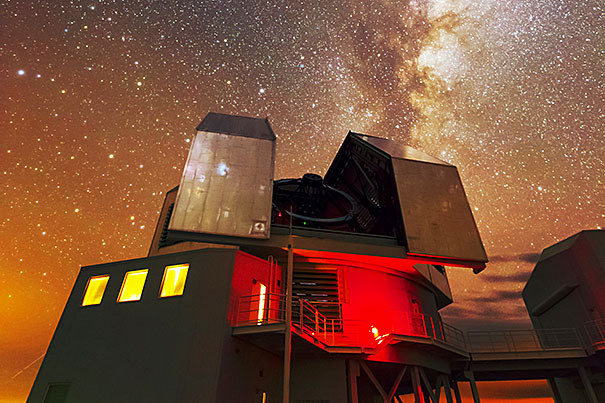
-
Forks, knives, beakers
New York Times columnist Harold McGee and chef Dave Arnold introduced this year’s “Science and Cooking” public lecture series, which runs through December.
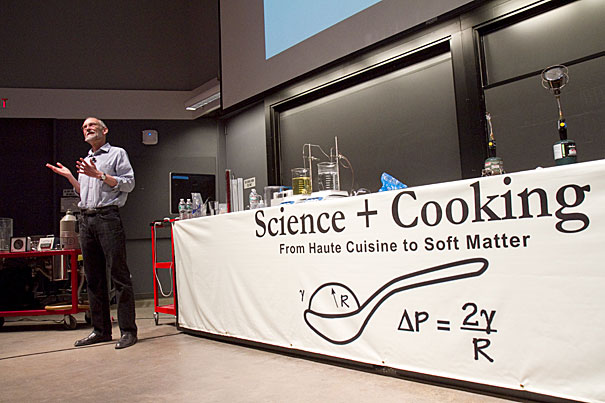
-
Study shows female physicians paid less
A Harvard study provided strong evidence that female physicians are underpaid compared to their male counterparts.
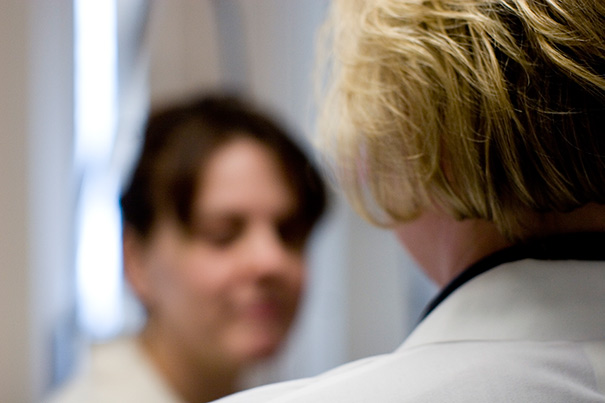
-
Biases that can blind us
Psychology Professor Mahzarin Banaji gave incoming members of Harvard’s Class of 2017 a tour of their own biases, helping to raise awareness that can help them avoid making decisions based on unconscious preferences.
-
Pinched minds
The accumulation of money woes and day-to-day anxiety leaves many low-income individuals not only struggling financially, but cognitively, says Harvard economist Sendhil Mullainathan. In a study featured in Science, he reports that the “cognitive deficit” caused by poverty translates into as many as 10 IQ points.
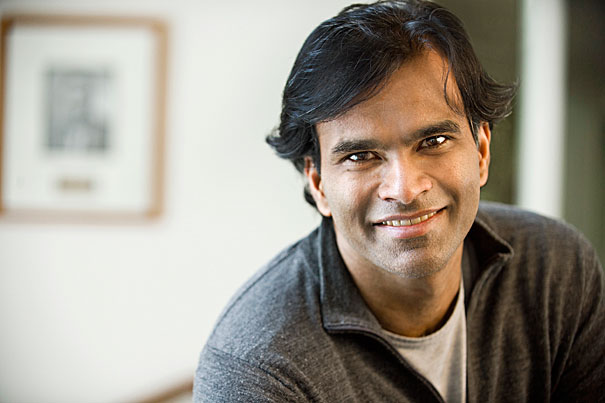
-
Hack attacks, explained
In a question-and-answer session, Jonathan Zittrain, co-founder of the Berkman Center for Internet & Society, explains the latest hack attacks on major news media outlets.

-
Transparent artificial muscle plays music
Using a gel-based audio speaker, Harvard researchers have shown that electrical charges carried by ions, rather than electrons, can be put to meaningful use in fast-moving, high-voltage devices.
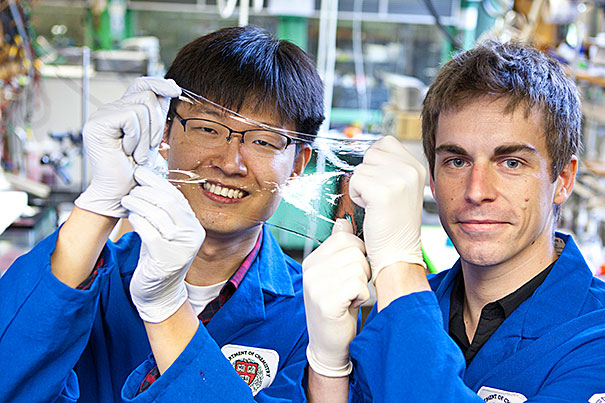
-
Wildfires projected to worsen with climate change
A Harvard model predicts that by 2050, wildfire seasons will be three weeks longer, up to twice as smoky, and will burn a wider area in the western United States.

-
One goal, many players
GoAmazon2014 is part of the Large Scale Biosphere-Atmosphere Experiment in Amazonia (LBA), the largest umbrella for research in the Amazon, which explores everything from social issues to scientific inquiries.
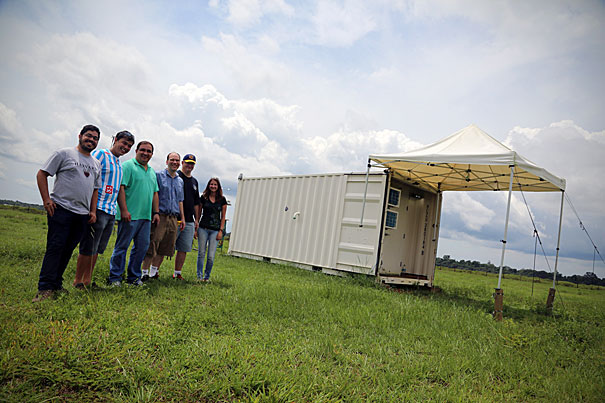
-
Atop the Amazon rainforest
Harvard air chemistry expert Scot Martin is working with the Department of Energy, as well as several international partners, to track how pollution above the pristine Amazon rainforest is changing the climate.
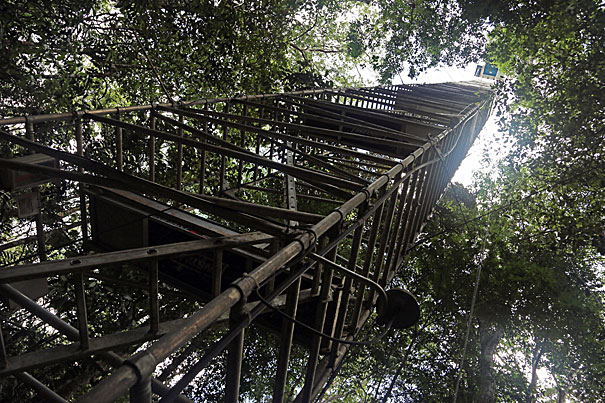
-
Fueling the entrepreneurial spirit
A growing number of Harvard faculty members, fellows, and even students are looking to take their innovative ideas a step further and bring them to the marketplace.
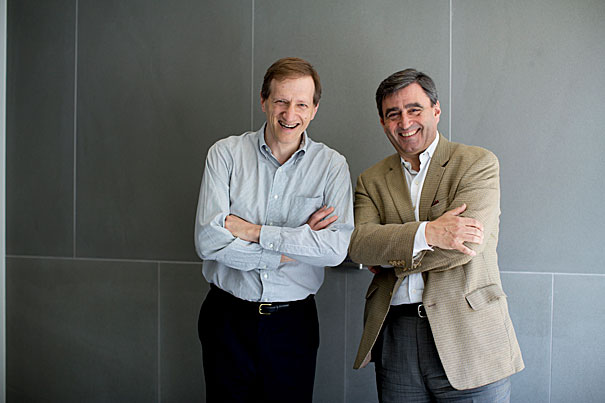
-
Popsicle Earth
A recently published paper says that during the last glacial maximum, more ice than previously thought covered the globe.
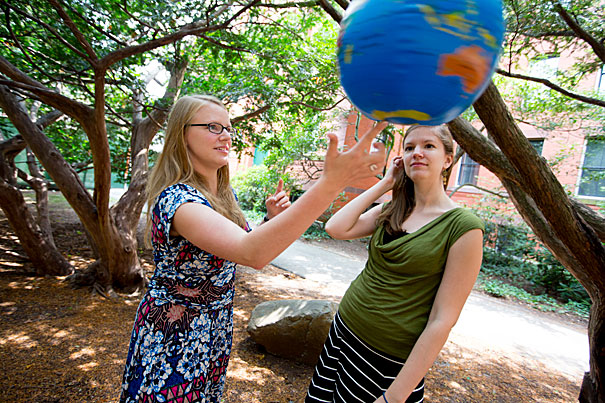
-
Removing indoor pollution
A Harvard School of Public Health graduate and doctoral candidate in environmental health is one of the creative forces behind SolSource, a revolutionary, sun-powered grill designed specifically to reduce pollution inside rural houses.
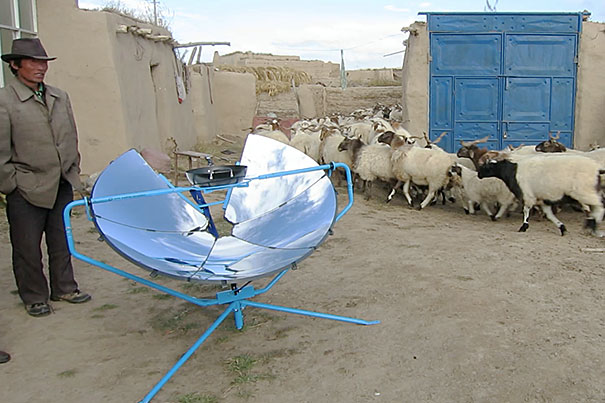
-
Ideas to build on
In the face of a coming century of rising seas, a Harvard design studio opens the door to creative speculation on how to remake the infrastructures of coastline cities.



